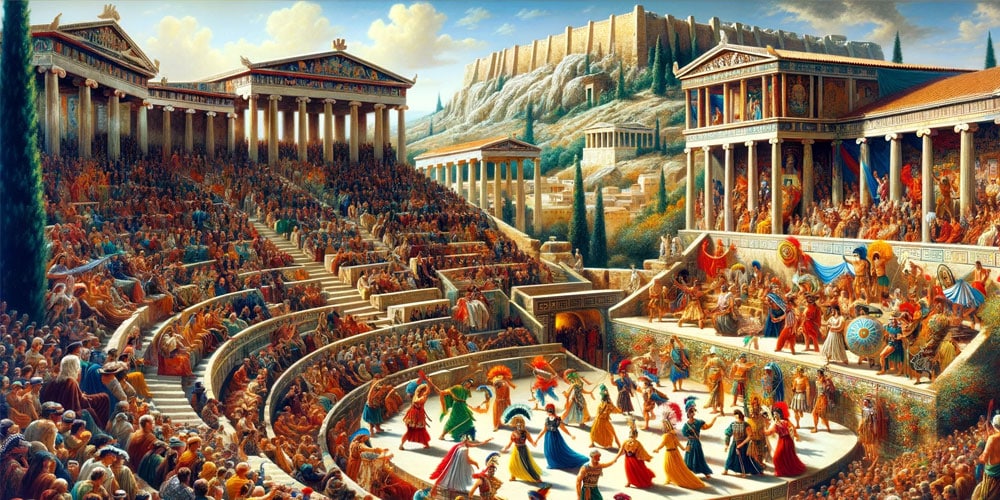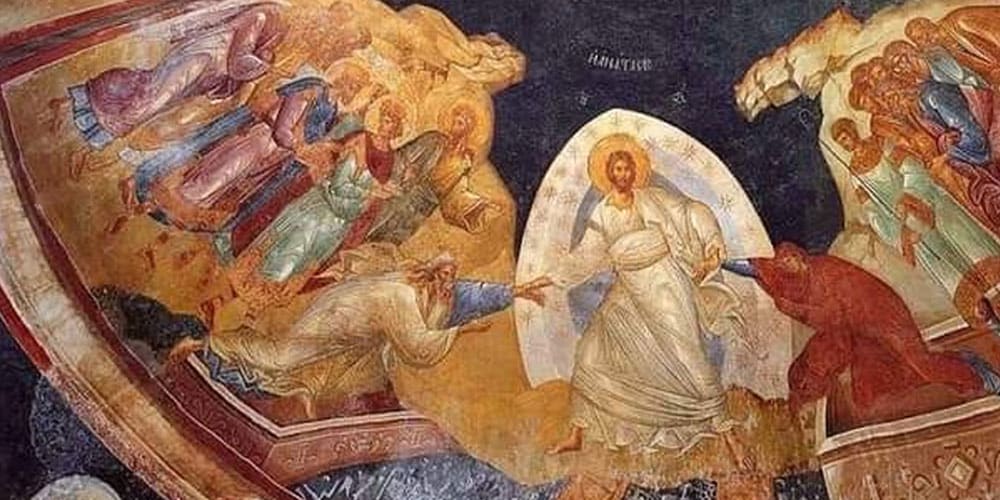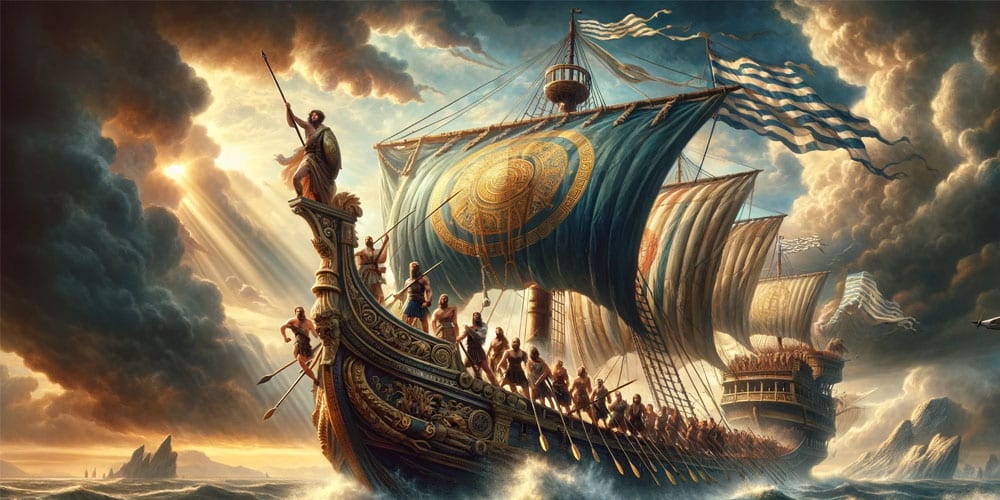Facts about Greece
Greece is not just a country; it’s a mosaic of vibrant cultures, groundbreaking achievements, and natural wonders that have shaped the world as we know it today. From the birthplace of Western civilization to the cradle of democracy, from the legendary peaks of Mount Olympus to the sun-drenched beaches of Santorini, Greece offers a journey through time and beauty unlike any other.
In this page, we present some of the most interesting facts about Greece, each shedding light on the country’s monumental contributions to science, art, philosophy, and more. We uncover the secrets of ancient technologies, the origins of the Olympic Games, the architectural marvels that dot the landscape, and the enduring myths that continue to captivate the imagination.
Embark on a captivating journey to discover the heart and soul of Greece, a country where history and modernity dance under the Mediterranean sun, where the spirit of hospitality warms every interaction, and where every corner hides a story waiting to be told. Whether you’re a history enthusiast, a lover of nature, or a culinary adventurer, these 30 incredible facts about Greece will leave you with a deeper appreciation for the rich tapestry that makes this country truly unique. Welcome to the marvels of Greece, where every fact is a doorway to an extraordinary legacy.
1 Birthplace of Democracy
Greece, specifically Athens, is known as the birthplace of democracy. In the 5th century BC, Athens established a system of governance that granted decision-making power to its citizens, laying the foundation for democratic systems worldwide. This radical form of government emerged in stark contrast to the monarchies and oligarchies of the time, allowing for public debate and decision through a general assembly where citizens could speak and vote.
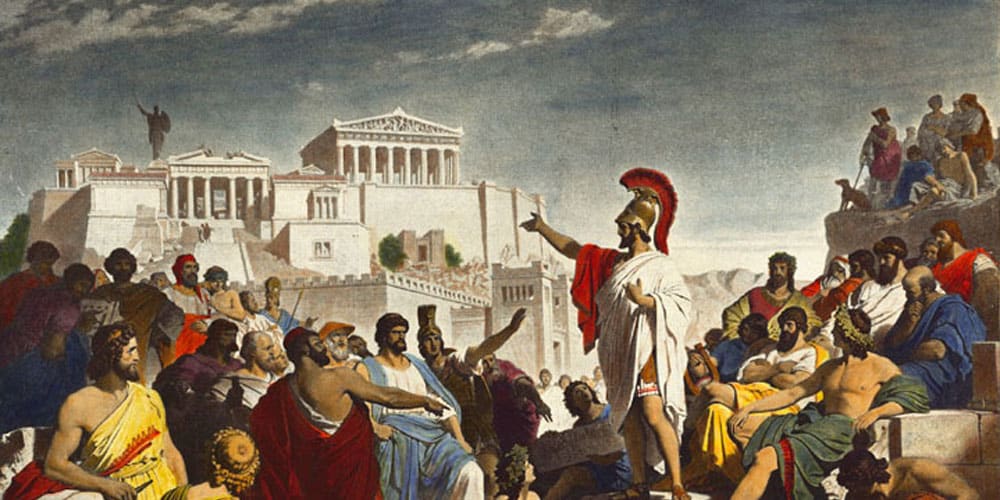
2 Home of the Olympic Games
The ancient Olympic Games originated in Olympia, Greece, in 776 BC, as a religious festival dedicated to Zeus. These games, held every four years, were so significant that they led to the establishment of the Olympic truce, a period during which wars would cease to ensure safe travel for athletes and spectators. The modern Olympic Games were revived in Athens in 1896, continuing the tradition of international athletic competition.
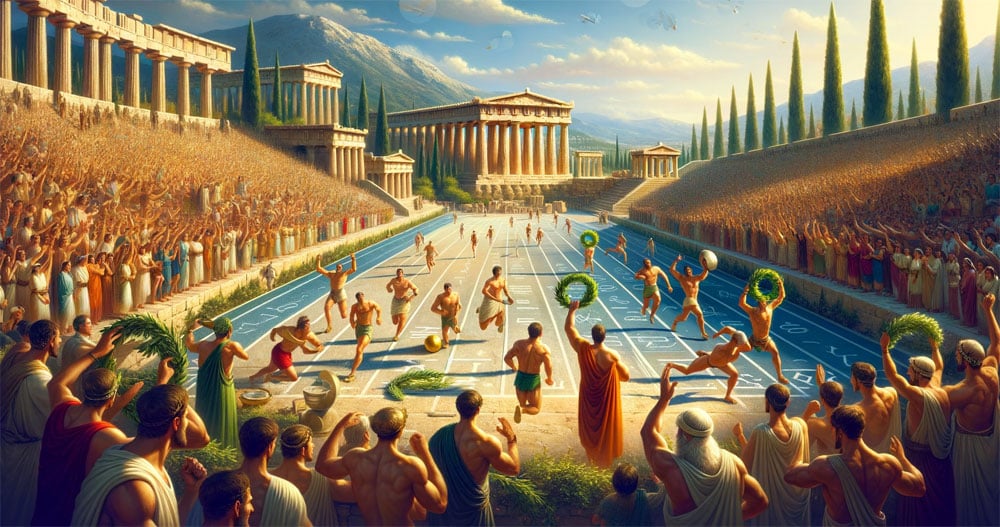
3 Cradle of Western Philosophy
Greece is the cradle of Western philosophy, with ancient Greek philosophers like Socrates, Plato, and Aristotle laying the groundwork for Western thought. Their inquiries into ethics, logic, politics, metaphysics, and epistemology have profoundly influenced the development of Western intellectual history, shaping the fields of science, politics, and ethics.
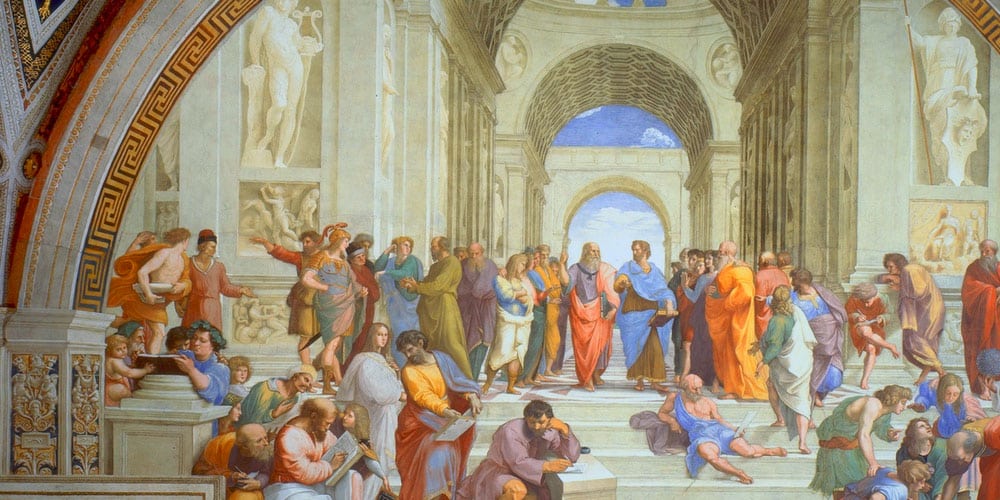
4 Land of Mythology
Greek mythology, with its pantheon of gods, epic tales, and heroes, has been a significant source of artistic and cultural inspiration worldwide. Stories of Zeus, Hera, Athena, and Hercules, among others, not only played a central role in ancient Greek religion and life but also continue to influence modern literature, movies, and art, demonstrating the enduring legacy of these ancient tales.

5 Greece a Land of Architectural Marvels
Ancient Greece is renowned for its architectural innovations, including the development of the three classical orders of architecture: Doric, Ionic, and Corinthian. The Parthenon on the Acropolis of Athens is a prime example of ancient Greek architectural brilliance, embodying mathematical precision, aesthetic harmony, and structural innovation.
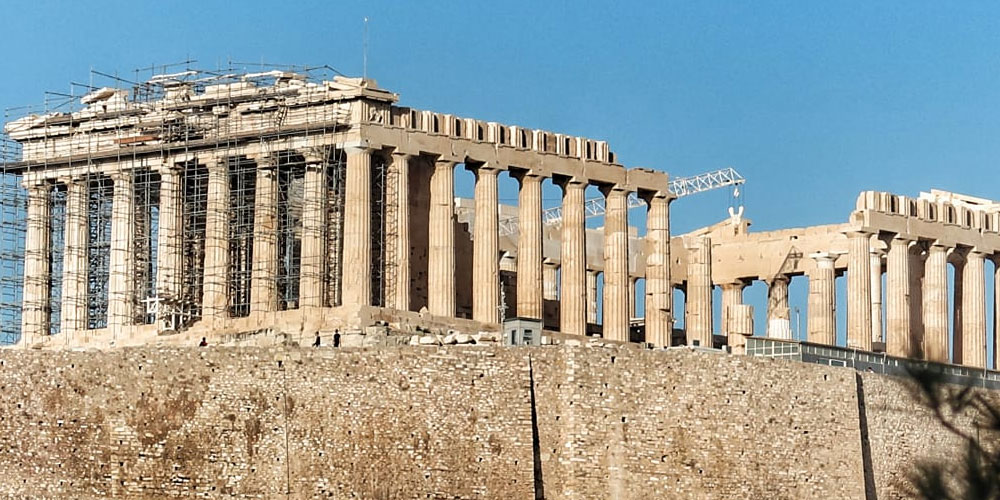
6 The Greek Alphabet
The Greek alphabet, developed in the 8th century BC, is one of the oldest written scripts still in use today. It was the first alphabet to introduce vowels, significantly influencing the development of other alphabets, including the Latin and Cyrillic scripts. The Greek alphabet has been used for the Greek language for over 2,800 years and has also been adopted for mathematical and scientific notation.
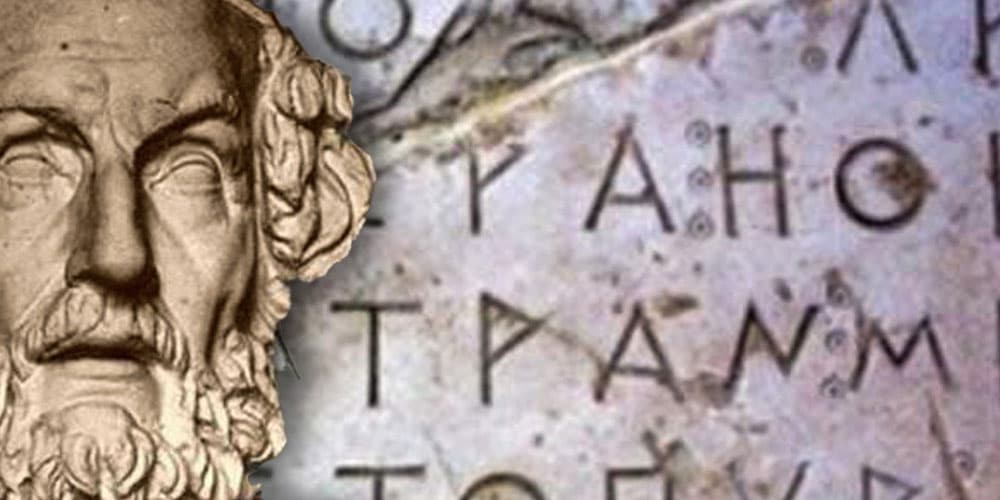
7 Greece A Maritime Nation
Greece’s geographic location and extensive coastline have made it a leading maritime nation throughout history. The ancient Greeks were skilled sailors and traders, establishing colonies and trade routes across the Mediterranean and Black Seas. Today, Greece has one of the largest merchant fleets in the world, highlighting its continued importance in international shipping and trade.

8 A Land of Many Islands
Greece consists of thousands of islands, with estimates ranging from 1,200 to 6,000, of which about 227 are inhabited. These islands, including Crete, Rhodes, Mykonos, and Santorini, are renowned for their stunning landscapes, beautiful beaches, and unique cultures, making Greece a top destination for tourists seeking sun, sea, and history.
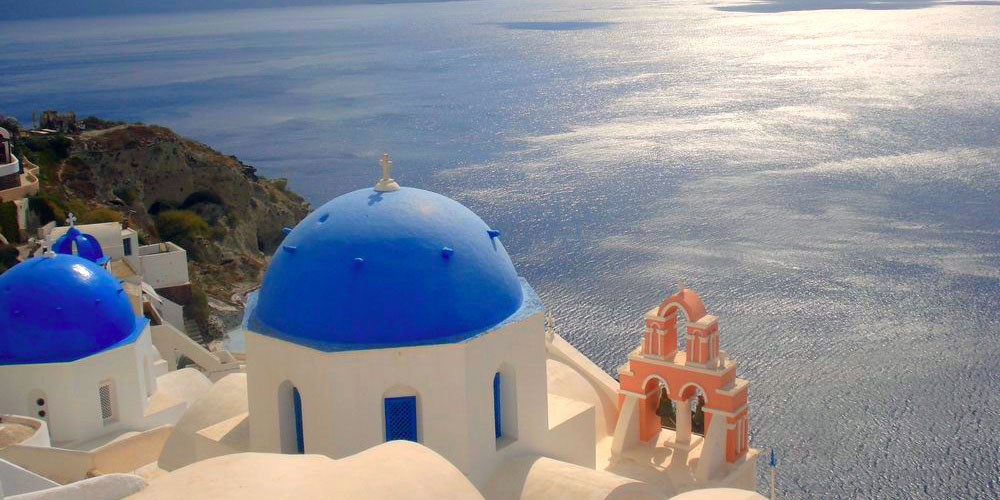
9 Greece’s Innovative Ancient Technology
Ancient Greeks made significant contributions to technology, including the Antikythera mechanism, an ancient analog computer used to predict astronomical positions and eclipses for calendrical and astrological purposes. Inventions like the water clock, the screw pump, and the use of levers and pulleys demonstrate the advanced understanding of mechanics and technology in ancient Greece.
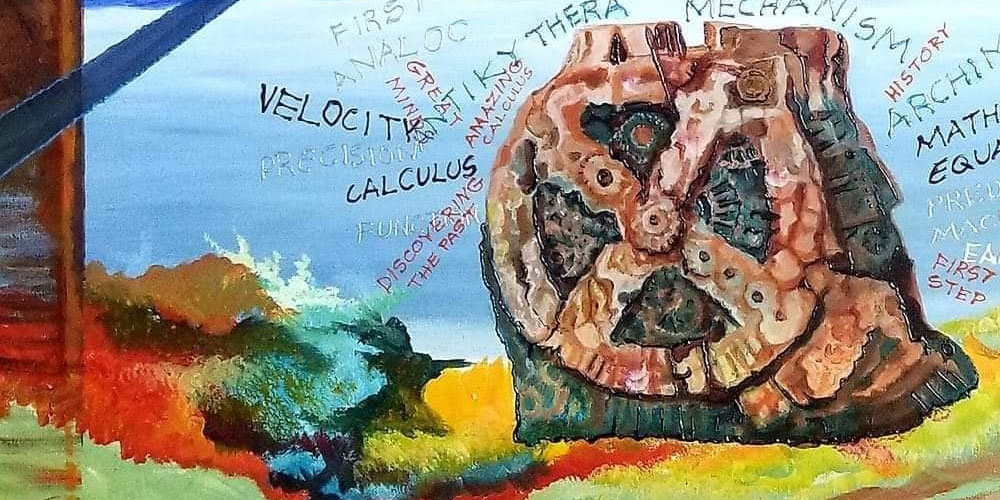
10 The Greek Cuisine
Greek cuisine is celebrated for its health benefits and rich flavors, characterized by its use of olive oil, herbs, grains, fish, wine, and meat. Dishes such as moussaka, souvlaki, and tzatziki reflect the Mediterranean diet’s influence on global culinary practices. Greek cuisine also places a strong emphasis on freshness and seasonality, with many dishes being deeply rooted in tradition yet adaptable to contemporary tastes.

11 Byzantine Empire’s Legacy
The Byzantine Empire, with its capital in Constantinople (modern-day Istanbul), was a direct continuation of the Roman Empire in its eastern provinces. Greek was the empire’s official language, and its cultural and religious influence was profound, particularly in the realm of Orthodox Christianity, which remains a major religious tradition in Greece and beyond. The Byzantine Empire’s art, architecture, and scholarly works helped preserve Greek and Roman knowledge through the Middle Ages, bridging the ancient and modern worlds.
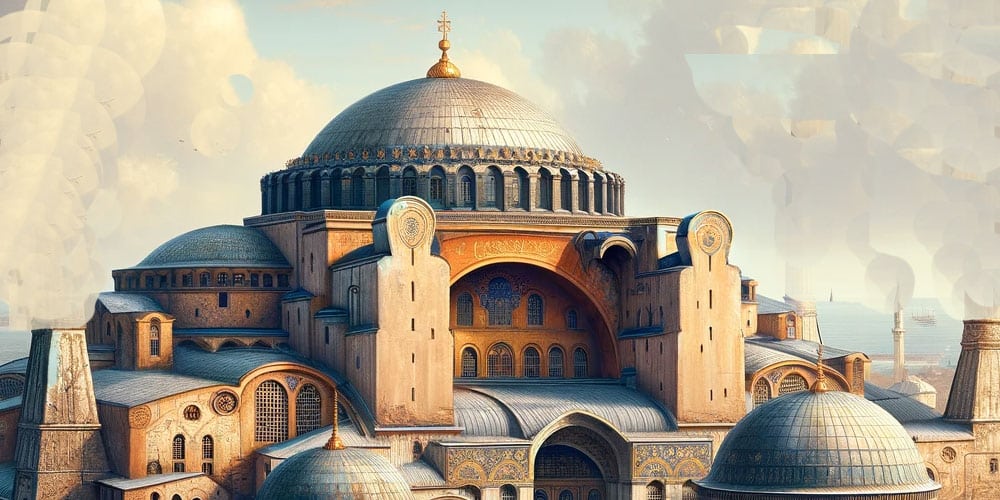
12 Greek Language’s Longevity
The Greek language boasts a recorded history of over 3,400 years, making it one of the oldest languages still spoken today. It has evolved through various stages, from Mycenaean Greek, documented on Linear B tablets, to Classical Greek, and onto modern Greek. This linguistic continuity is a testament to the enduring cultural and historical identity of the Greek people.
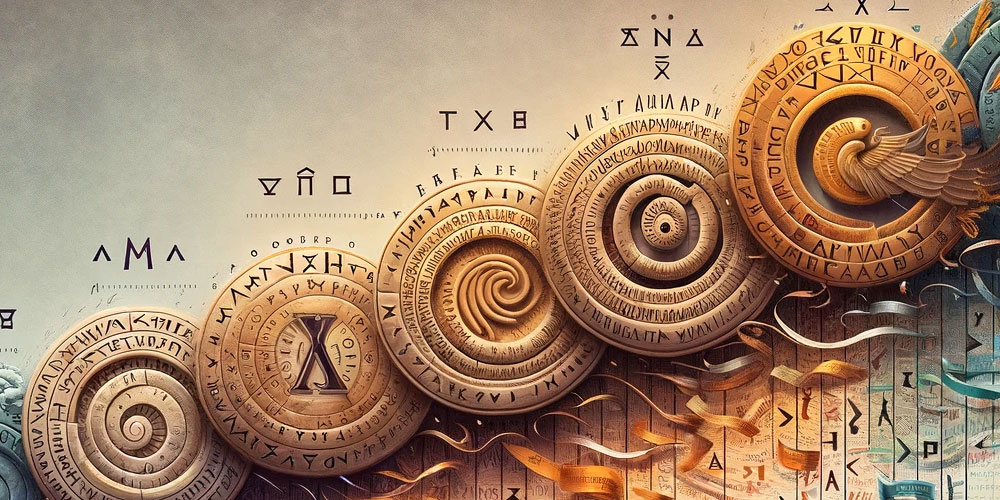
13 Greek Influence on the English Language
The Greek language has significantly influenced English, contributing many words, especially in the realms of science, medicine, and philosophy. Terms like “democracy,” “philosophy,” “academy,” and “theater” have Greek origins, illustrating the deep impact of Greek thought and language on the world.
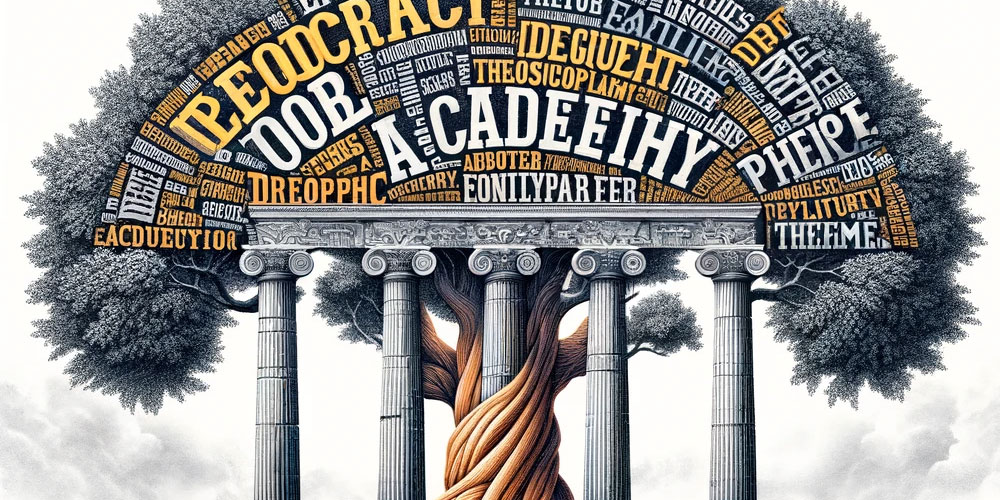
14 Vibrant Folk Traditions
Greece has a rich tradition of music, dance, and costume, deeply rooted in its history and regional diversity. Traditional Greek music involves a wide range of instruments, including the bouzouki, lyre, and bagpipe, and dances like the Sirtaki, Zeibekiko, and Kalamatianos reflect the social and historical narratives of the Greek people.

15 Greece A Hub of Early Christianity
16 Unique Geological Features
Greece’s diverse landscape includes unique geological features like the Meteora, towering rock formations that host centuries-old monasteries perched atop them, and the Samaria Gorge, one of the longest gorges in Europe, offering breathtaking natural beauty and a haven for diverse flora and fauna.
The diverse landscapes of Greece are a testament to the country’s complex geological past, including its position on the meeting point of the African and Eurasian tectonic plates. Here are some of the most notable geological features that make Greece a fascinating study in Earth’s natural history

17 Land of Renowned Greek Philosophers
The ancient land of Greece, a peninsular and archipelagic country located in the southeastern part of Europe, is celebrated not only for its monumental contributions to art, politics, and science but also as the cradle of Western philosophy. This illustrious tradition began in the 6th century BCE and continued to flourish and evolve through the classical and Hellenistic periods, laying the foundational principles that would shape Western intellectual thought for centuries to come.
Pre-Socratics, a group of early Greek thinkers from various parts of the Aegean world, who sought natural explanations for the universe’s origins and processes. Thales of Miletus, considered the first philosopher, proposed that water was the fundamental substance of all matter. His successors, such as Anaximander and Anaximenes, continued this tradition of seeking the arche, or the underlying principle of the cosmos. Pythagoras introduced a mystical dimension to philosophy with his emphasis on numbers and mathematical relations, while Heraclitus of Ephesus famously posited that change, symbolized by fire, was the essence of reality.
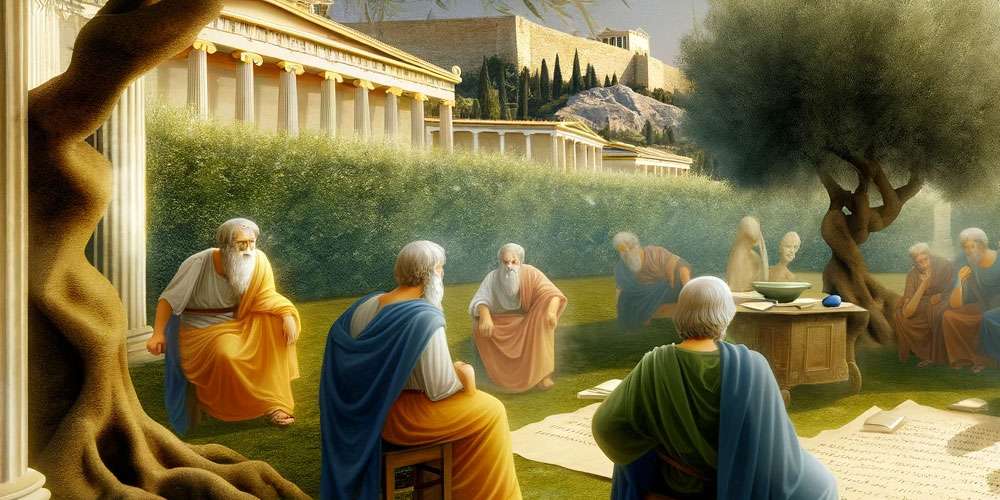
18 Innovative Forms of Government
The diversity of governance models in ancient Greece reflects the vibrancy and complexity of its city-states, each experimenting with different political systems to address their unique challenges and aspirations. These ancient experiments in governance have left an indelible mark on political thought, inspiring future generations to explore the principles of justice, power distribution, and the role of citizens in shaping their societies. Ancient Greek governance, with its innovations and flaws, serves as a testament to the enduring human quest for fair and effective systems of rule, influencing the development of democratic ideals that continue to resonate across the world today.
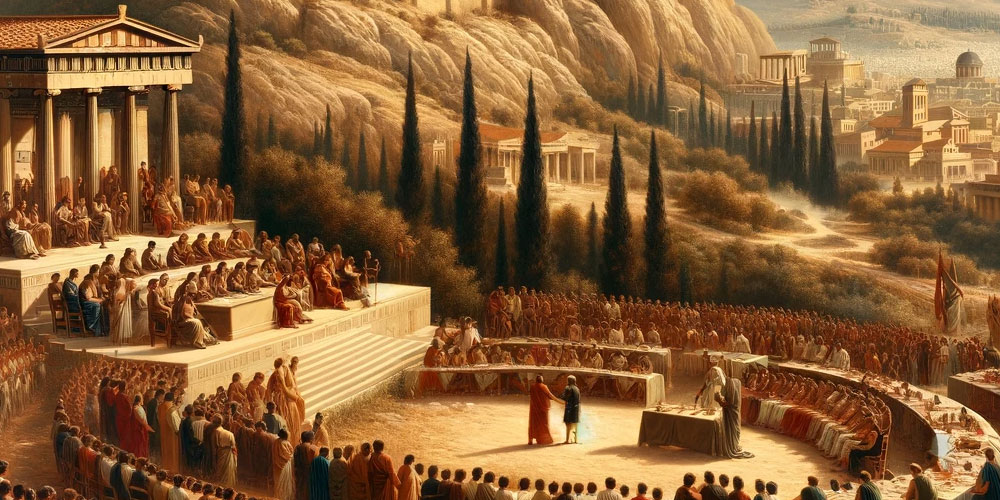
19 Rich Maritime Traditions
The Greek island of Crete is considered the birthplace of the first advanced civilization in Europe, the Minoans, who were renowned for their advanced architecture, art, and maritime trade, influencing the entire Mediterranean region.
20 Olive Oil Production
Greece is one of the world’s leading producers of olive oil, an essential component of Greek cuisine and a key export product. The country’s climate and terrain are ideal for olive cultivation, with some olive trees in Greece being centuries old, embodying the enduring relationship between the Greek people and their land.
Olive oil production in Greece is a practice steeped in history, tradition, and cultural significance, dating back thousands of years to ancient civilizations. Greece is one of the world’s leading producers of olive oil, and it holds a special place in the country’s agricultural landscape. The olive tree is synonymous with Greek heritage and is deeply ingrained in the nation’s culture, symbolizing peace, prosperity, and longevity.

21 World Heritage Sites
Greece is home to 18 UNESCO World Heritage Sites, showcasing its rich historical and cultural heritage. Among these are the Acropolis of Athens, symbolizing the classical spirit of ancient Greece; Delphi, the site of the famous oracle; and the medieval city of Rhodes, which reflects the blend of different historical influences over the centuries.
22 The Concept of Hospitality (Filoxenia)
Filoxenia is the ancient Greek concept of hospitality, considered a moral obligation. This tradition entails showing generosity and courtesy to strangers, deeply ingrained in Greek culture. The legacy of xenia is evident in modern Greece, where hospitality remains a fundamental aspect of society, with Greeks often going out of their way to make visitors feel welcome.
23 Land of Firsts in Science and Math
Ancient Greeks made groundbreaking contributions to science and mathematics. Thales of Miletus is known as the father of science for his method of inquiry and prediction of a solar eclipse. Pythagoras contributed significantly to mathematics, and Hippocrates is considered the father of medicine, establishing medical practices based on observation and rationality.
The Greeks were also pioneers in astronomy and physics. Aristarchus of Samos proposed a heliocentric model of the solar system centuries before Copernicus, suggesting that the Earth and other planets orbit the Sun. Eratosthenes estimated the Earth’s circumference with remarkable accuracy. In physics, Democritus theorized the existence of atoms, laying the conceptual foundation for modern chemistry and physics.
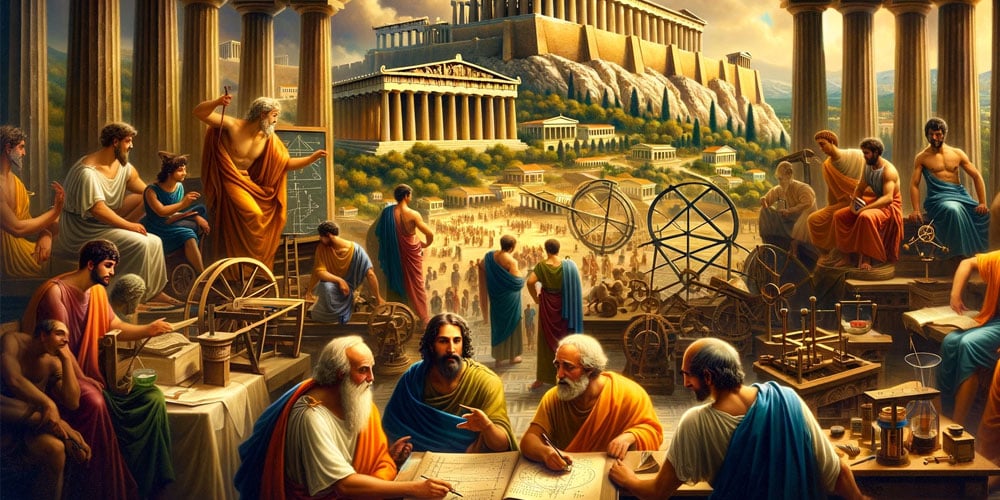
24 Greek Coffee Culture
Greek coffee culture is an integral part of daily life in Greece, representing a tradition that goes beyond mere consumption to encompass social interaction, relaxation, and hospitality. Rooted in history and tradition, Greek coffee (formerly known as Turkish coffee) is enjoyed slowly, often over conversations with friends and family, reflecting the laid-back lifestyle and the importance of community in Greek society.
In recent years, Greek coffee culture has embraced modern trends, with the emergence of specialty coffee shops and a growing interest in various brewing methods. However, the traditional Greek coffee and the rituals surrounding its consumption remain a beloved and enduring aspect of Greek life. It serves as a reminder of the country’s rich heritage and the value placed on taking time to enjoy the simple pleasures of life.
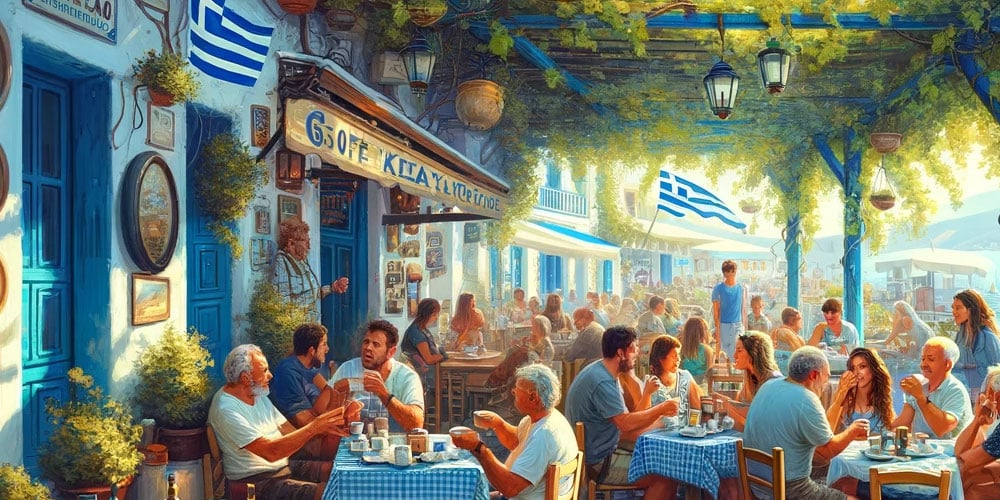
25 Santorini’s Volcanic Beauty
Santorini, one of Greece’s most famous islands, owes its dramatic landscape to volcanic activity. The island’s iconic caldera offers stunning views, especially at sunset, and the volcanic soil contributes to the unique flavors of Santorini’s wines, making it a unique blend of natural beauty and cultural richness.
Santorini’s volcanic beauty is not only a testament to the island’s dramatic geological history but also a source of inspiration and awe for those who visit. Its natural wonders, combined with the serene beauty of its traditional Cycladic architecture, make Santorini a quintessential example of the harmonious blend of nature’s power and human artistry.
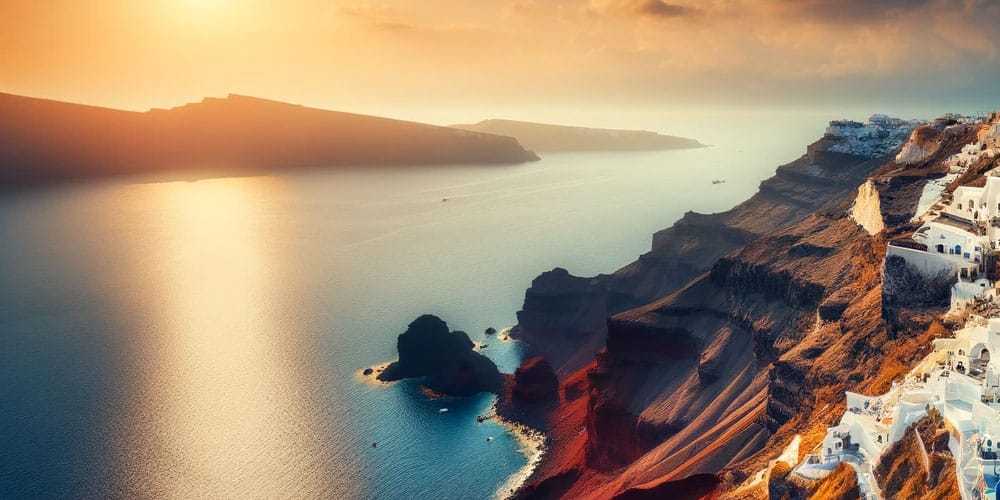
27 Invention of the Theatre
The ancient Greeks invented the theatre as a form of entertainment and artistic expression. The Theatre of Dionysus in Athens is considered the world’s first theatre, where tragedies and comedies were performed, exploring themes of morality, society, and the human condition. This invention has had a lasting impact on Western culture and the arts.
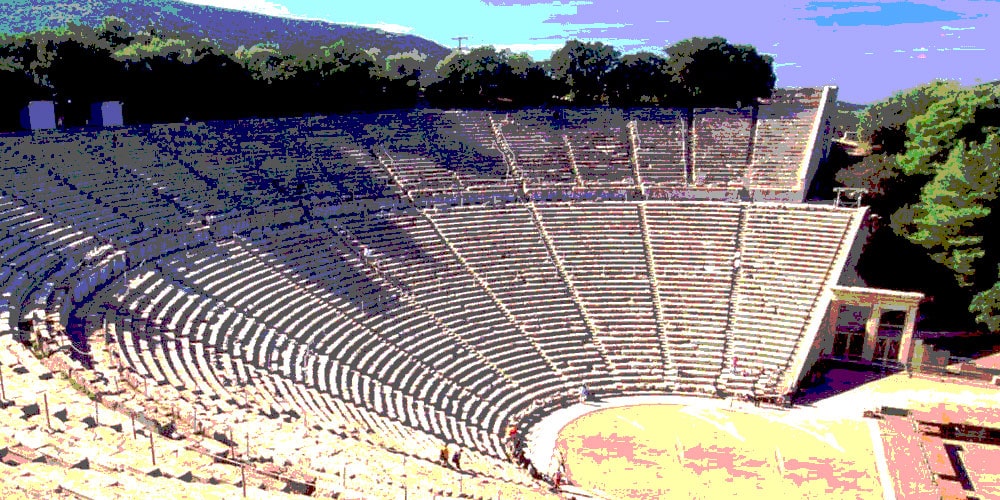
28 The Blue Domed Churches of the Cyclades
The Cyclades islands, with their iconic white buildings and blue-domed churches, offer some of the most recognizable images of Greece. This architectural style, found in places like Santorini and Mykonos, reflects the islands’ adaptation to their environment, with white reflecting the harsh sun and blue symbolizing the sea and sky.
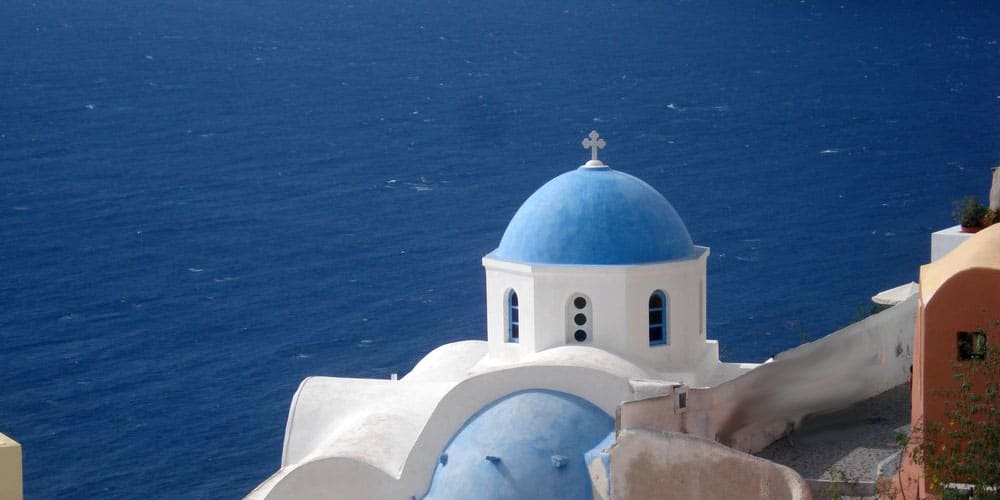
29 Mediterranean Biodiversity Hotspot
Greece’s unique position in the Mediterranean Basin, combined with its varied landscapes and climates, makes it a biodiversity hotspot of significant ecological importance. The country’s rich natural heritage is characterized by a remarkable variety of ecosystems, ranging from lush forests and wetlands to rugged mountains and extensive coastline, hosting an impressive array of flora and fauna.
Greece’s varied landscapes, from its mountainous regions to its extensive coastlines and islands, make it a hotspot for biodiversity in the Mediterranean. The country is home to a wide range of endemic species and diverse ecosystems, offering important habitats for birds, marine life, and unique flora.

30 Ancient Greek Theatre Festivals
Theatre was an essential part of ancient Greek culture, with festivals like the Dionysia in Athens being major events. These festivals featured competitions in tragedy, comedy, and satyr plays, drawing large audiences and fostering a communal spirit of celebration and artistic appreciation.
Ancient Greek theatre festivals were a cornerstone of Greek culture, serving as both a form of entertainment and a religious ritual dedicated to the gods, particularly Dionysus, the god of wine, fertility, and theater. These festivals, held in large open-air theaters, were a vital part of the social and religious life in ancient Greece, blending art, spirituality, and community.
The festivals were not only entertainment but also competitions, with prizes for the best plays. They fostered a sense of community and civic pride, and were occasions for Athenians and visitors from other city-states to gather, share ideas, and honor the gods. The legacy of these festivals and the works presented continues to influence theater and culture worldwide.
